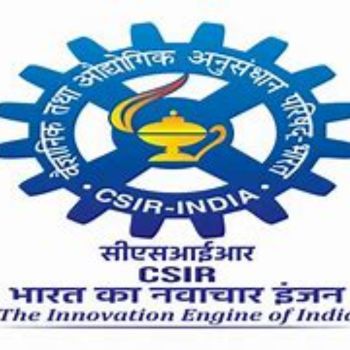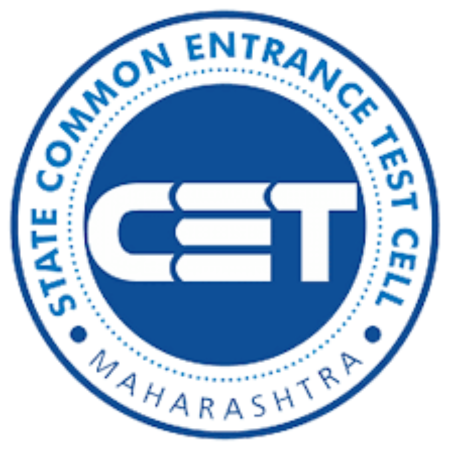PhD in Organic Chemistry is a research-oriented program in which aspirants have to conduct independent research work under the supervision of an allotted guide. The PhD is generally awarded after 3 – 5 years of registration. To obtain a PhD in Organic Chemistry degree, aspirants have to submit a thesis and face an open defence viva at the end of the research project.
To pursue Ph.D in Organic Chemistry, a minimum qualification is having a second class (55% marks) in MSc Chemistry (Organic) is preferred. Students with Analytical or Inorganic Chemistry majors can also apply if they meet other eligibility criteria, such as qualifying for an entrance exam, interview, and project proposal round. Some universities may conduct their own entrance exam, while most government universities and research centers consider State or National level entrance exams (UGC/CSIR NET, SET, GATE, etc).
Some of the famous institutes offering the PhD in Organic Chemistry are Indian Institute of Science, Indian Institutes of Technology (IITs), the Institute of Chemical Technology (ICT), JNCASR, and CHARUSAT. These institutes might offer a fellowship as well. The course fee highly varies according to the project funding, the qualifying entrance exam, the institute's policies, etc.
Table of Contents
- PhD Organic Chemistry Key Highlights
- What is a PhD in Organic Chemistry?
- Why Study PhD in Organic Chemistry?
- Who should study PhD in Organic Chemistry?
- PhD Organic Chemistry Eligibility Criteria
- PhD Organic Chemistry Entrance Exams
- PhD in Organic Chemistry Colleges in India
- PhD Organic Chemistry Admission Process
- PhD Organic Chemistry Syllabus
- PhD Organic Chemistry Job Opportunities in India
- PhD Organic Chemistry Vs. PhD Inorganic Chemistry
- PhD Organic Chemistry FAQs
PhD Organic Chemistry Key Highlights
The key highlights of PhD Organic Chemistry are tabulated below.
What is a PhD in Organic Chemistry?
A PhD in Organic Chemistry is a doctorate degree that prepares you for a research and academic career. It involves hardcore research, sometimes may sometimes grant you a patent on your findings.
PhD in Organic Chemistry also requires you to attend seminars, conferences, workshops, and present your research alongside publications. Aspirants have to follow 6 hours/week teaching duty as per the UGC policy. UGC has discontinued the mandatory publication policy, making it easy and quick to finish a PhD for scholars. However, some private universities require at least 2 publications from each scholar pursuing a PhD.
Why Study PhD in Organic Chemistry?
PhD in Organic Chemistry is a prestigious degree that offers you respected and well-paid jobs in Research as well as Academia.
- A PhD in Organic Chemistry will ensure a stable career in the Pharmaceutical industry.
- One can work as an R&D scientist, a Drug formulation scientist, a project manager, or a research associate in government-funded projects.
- It also qualifies you for an assistant professor job at a university or college. However, to get a government job in teaching, NET or SET is required.
- While pursuing a PhD in Organic Chemistry, scholars may receive a government fellowship worth INR 2 to 4 LPA for 3 to 5 years of the program.
- Such PhD Organic Chemistry fellowships include CSIR JRF, DST JRF, INSPIRE, Single Girl Child Fellowship, SHODH, etc.
- One can contribute to the existing knowledge and enrich the literature for the benefit of the scientific community.
Who should study PhD in Organic Chemistry?
PhD in Organic Chemistry is a good fit for those looking to build a career as a scientist in the Pharma sector. It offers you many opportunities to work in leadership positions in the drug-formulating industry.
- Those interested in an academic career should pursue PhD in Organic Chemistry as premier institutes consider PhD holders only.
- Those looking to work on government-funded projects can pursue PhD in Organic Chemistry as it provides a strong foundation for a career in research.
- People interested in applied or fundamental research can pursue a PhD in Organic Chemistry and develop new methodologies, applications, or advanced concepts in this field.
PhD Organic Chemistry Eligibility Criteria
PhD Organic Chemistry eligibility criteria are having a second class or 55% marks in a Master’s degree.
- Candidates with MSc Organic Chemistry/Analytic Chemistry/Inorganic Chemistry, M.Tech Chemistry/Biochemistry, or M.Phil can apply.
- Qualifying a CSIR UGC NET/SET/GATE or institute-specific entrance exam is necessary.
- Those with a valid score in state or national entrance exams are exempted from institute-specific exams but have to appear for personal interviews.
- An interview is followed by a project proposal where a candidate has to present their research idea, its potential, impact, and requirements to the selection committee.
PhD Organic Chemistry Entrance Exams
To enrol in PhD Organic Chemistry, one has to qualify for entrance exams either at the state, national, or institute level. Most commonly accepted exams are tabulated below.
PhD in Organic Chemistry Colleges in India
PhD in Organic Chemistry is a broad category to conduct research as it involves a variety of research areas, and it is offered by many renowned institutes in India. Here are some of the best colleges/universities/research centers to pursue PhD in Organic Chemistry.
PhD Organic Chemistry Admission Process
PhD Organic Chemistry admission process is online through an application and SOP submission to the institute. Given below is a step-wise admission process followed at CHARUSAT for PhD Organic Chemistry.
Step 1: Regularly visit the official website of CHARUSAT as the university releases the PhD intake details, admission guidelines, and application form on the website only.
Step 2. Once released, check for the application form given on the website by selecting the program as “PhD Chemistry or PhD Organic Chemistry”.
Step 3. Fill out the form by providing all required information of education, personal, and contact details.
Step 4. Pay an application fee and submit the application.
Step 5. Appear in CDET on the given date and time. Those having NET qualification are exempted.
Step 6. Shortlisted applicants will be called for an interview.
Step 7. Post interview, selected candidates will be notified for guide selection and counselling process.
Step 8. Once allotted, candidates will have to register by paying fees and signing a letter from a guide.
Documents Required:
- Original Marksheet of 10th and 12th grade
- UG and PG degree certificates.
- School Leaving Certificate
- Caste Certificate (if applicable)
- Birth Certificate
- ID Proof (Aadhar/ PAN/ Passport)
- Passport-size Photograph
- Entrance exam scorecard
- Signature
- SOP
PhD Organic Chemistry Syllabus
Since PhD Organic Chemistry is a research-based degree program, it does not follow a rigid syllabus. Scholars will have to study some coursework subjects and fulfill the required credit in the first and second year of PhD. The coursework is based on their research project requirements and facilities available at the institute.
PhD Organic Chemistry Job Opportunities in India
With a PhD in Organic Chemistry, doctors can work as a research scientist, product scientist, R&D manager, project manager, assistant professor, JRF or SRF, and research associate.
Some of the well-paid PhD Organic Chemistry jobs are tabulated below.
PhD Organic Chemistry Vs. PhD Inorganic Chemistry
PhD in Organic or Inorganic Chemistry only differs in an area of specialisation. Other parameters like duration, career paths, fees, salaries, etc. highly depend on the university, scholar’s learning abilities, potential of research, and novelty of the work.
The table below gives a glance to specificity of both PhD programs and their research areas.
PhD Organic Chemistry FAQs
Is publication mandatory for PhD Organic Chemistry admission?
No, having a research paper published as a first author or co-author is not mandatory for admission in PhD in India. However, it is required if one has to go abroad for PhD Organic Chemistry or any other PhD program. Also, publications are no longer a compulsion for finishing a PhD degree.
What type of conference is required in PhD Organic Chemistry?
PhD Organic Chemistry aspirants will have to attend and present their findings at national or international conferences during their PhD program. Universities have made it compulsory to present research in relevant conferences in order to obtain a degree.
Can I pursue PhD Organic Chemistry Online?
No. PhD in Organic Chemistry requires wet lab work, meaning a scholar needs to perform experiments in the laboratory and cannot access it remotely. However, a Part-time PhD can be possible in some private universities. Also, PhD Scholars have to fulfil teaching duty criteria that does not allow an online PhD in Organic Chemistry.











